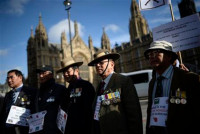National
The working women battling the odds, constantly pushing boundaries
Nepali society is hostile to women. The Post brings out the struggles of some to them.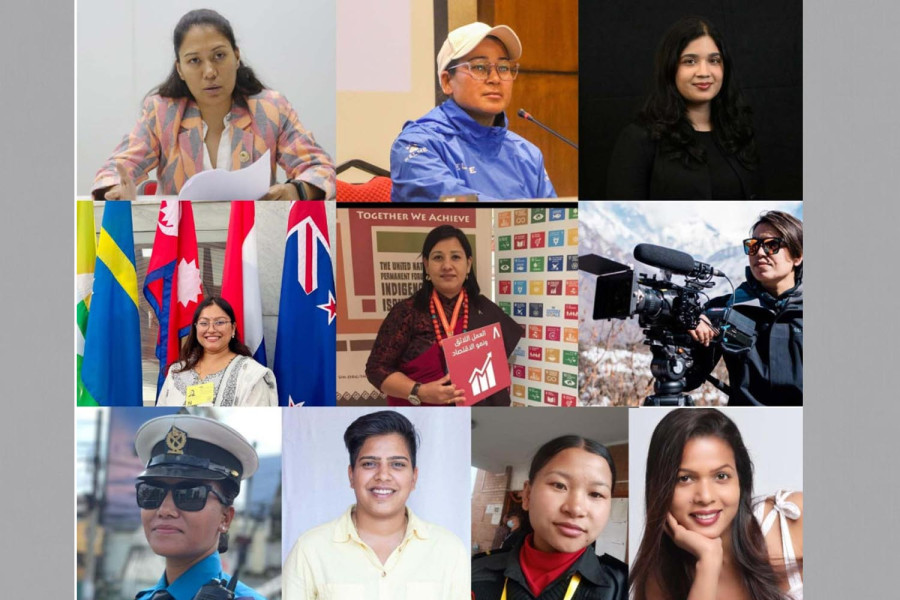
Aarati Ray
March is celebrated worldwide as Women’s History Month, aiming to put a spotlight on women’s contributions to events in history and contemporary society. The WHM corresponds to International Women’s Day, celebrated on March 8, which has its roots in labour movements in Europe and North America in the early 20th century.
The celebrations highlight the struggles of working women in societies dominated by men—the unpaid labour of homemakers and the harsh realities of workplace discrimination, to mention just a few.
In Nepal, more women are entering professional fields than ever before. What awaits them is a hostile working environment, snide remarks, subtle dismissals, and, at times, outright exclusion.
To cap off the WHM, the Post speaks to some of Nepal’s more prominent professional women working in traditionally male-dominated domains. What follows is their description of the daily battles they face at work to be heard, respected, and taken seriously, in their own words.
Sumana Shrestha
Member of Parliament and former minister for education
In Parliament, many women MPs speak. Yet, mainstream media seldom reports on their contributions. This means the very foundation of politics, the space for opinions, is being denied to us.
Issues raised by women politicians are often ignored, with credit frequently handed to male politicians instead. We are made to believe that the only space women can occupy is what is granted to us by our male counterparts, that is just 33 percent.
The third issue is the many ways in which women politicians are kept in deadlock. Instead of addressing the issues we raise, we are subjected to unnecessary controversies. For example, many parliamentarians have spouses who are non-Nepali, yet in my case, the effort to highlight this has been disproportionate.

There is a clear pattern—whenever a woman becomes vocal, there is a deliberate attempt to discredit her voice. People often say, “If Sumana had worn a saree, the issue she raised would have been taken seriously.”
But it’s not just about clothing; this strategy extends in many directions, all aimed at putting women into a box that aligns with what others are comfortable seeing.
Women are also told, “It’s a small thing, why don’t you compromise? If you do, you’ll get better opportunities later.” Or, “Don’t push now; we’ll give you a party ticket or a leadership position in the future.” These are classic manipulation tactics used to silence and undermine women.
Pratima Gurung
Faculty member at Padmakanya College, chair of the National Indigenous Disabled Women Association Nepal (NIDWAN)
Even in institutions like Padmakanya Multiple Campus, an all-girls college with female leadership, women faculty members still struggle to access higher leadership roles in different academic institutions. Female teachers are scarce beyond the secondary level in the majority of educational institutions.
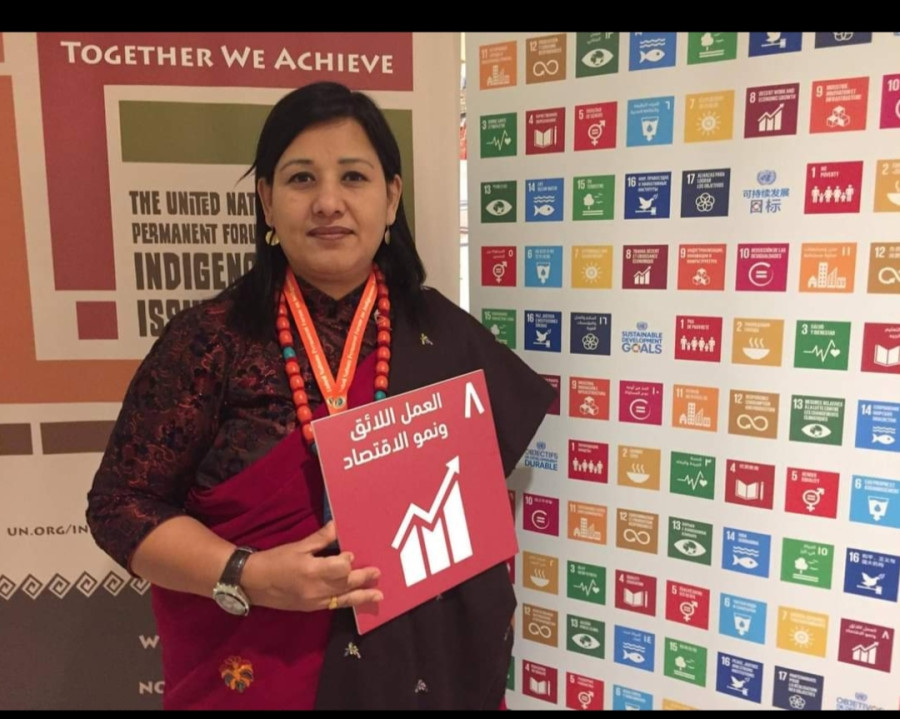
People rarely consider women for positions like rectors, dean or vice-chancellor. Even securing an assistant dean position is an uphill battle. A clear example is the recent nomination where two female candidates qualified for the vice-chancellor position at TU. But they were overlooked simply because the system favours men for powerful roles.
This irony is glaring: we teach feminism and inclusivity in classrooms, yet the institutions that promote these ideas fail to practise them.
Sarita Ghale
Traffic police
While we perform our duty based on laws without discriminating against driver’s identity or gender, our gender becomes a thorn in their eyes. When we stop motorists and drivers for a traffic violation, men mostly respond aggressively. They ignore our instructions and make sexist remarks about our role. But when male officers say or do the same thing, there’s little debate or resistance.

Some drivers even demand we call a male officer, using vulgar language or becoming physically aggressive. The toxic masculinity represented by the comment “Why should I—a man—listen to a woman?” is evident. There’s a saying that we’ve empowered our daughters but failed to teach our sons how to coexist with empowered women. Men should change their mindset and adapt to the changing society.
Sabita Tamang
Security worker
When people hear ‘security’, they assume it’s a man’s job. There’s this belief that “women need protection, so how can they possibly protect others?” Workplaces like offices and hospitals often overlook women for this role.
When we’re sent for security duty at events or companies, we sometimes hear, “Why didn’t they send a man instead?” People doubt our capability simply because we’re women. But the truth is, we can do this job just as well, and women have been excelling in every profession for years.
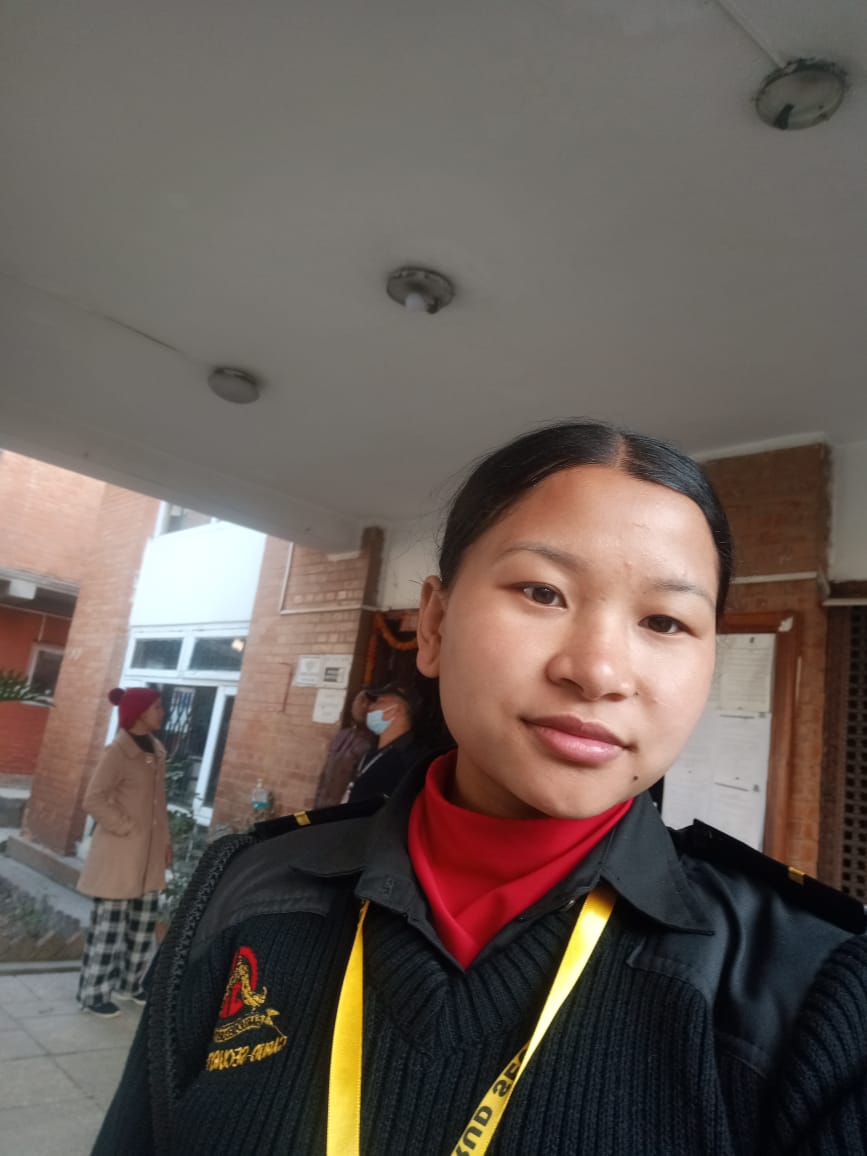
The real issue isn’t our ability, it’s society’s unwillingness to see us as equals in this field. Men need to realise that workplaces aren’t just their space. Passing off dismissive or inappropriate comments as ‘concern’ is part of the problem. It’s time they stepped out of their bubble and acknowledged that women belong here too.
Kunjani Pariyar Pyasi
Advocate
Women lawyers are not addressed professionally. While males are called ‘bidwan’ or ‘Sir’, we are called ‘nani’ (child) or ‘bahini’ (sister) in court. It’s difficult to convince people that women can be lawyers. When clients realise I’m female, they ask for a male lawyer, assuming that women can’t be effective in this field.
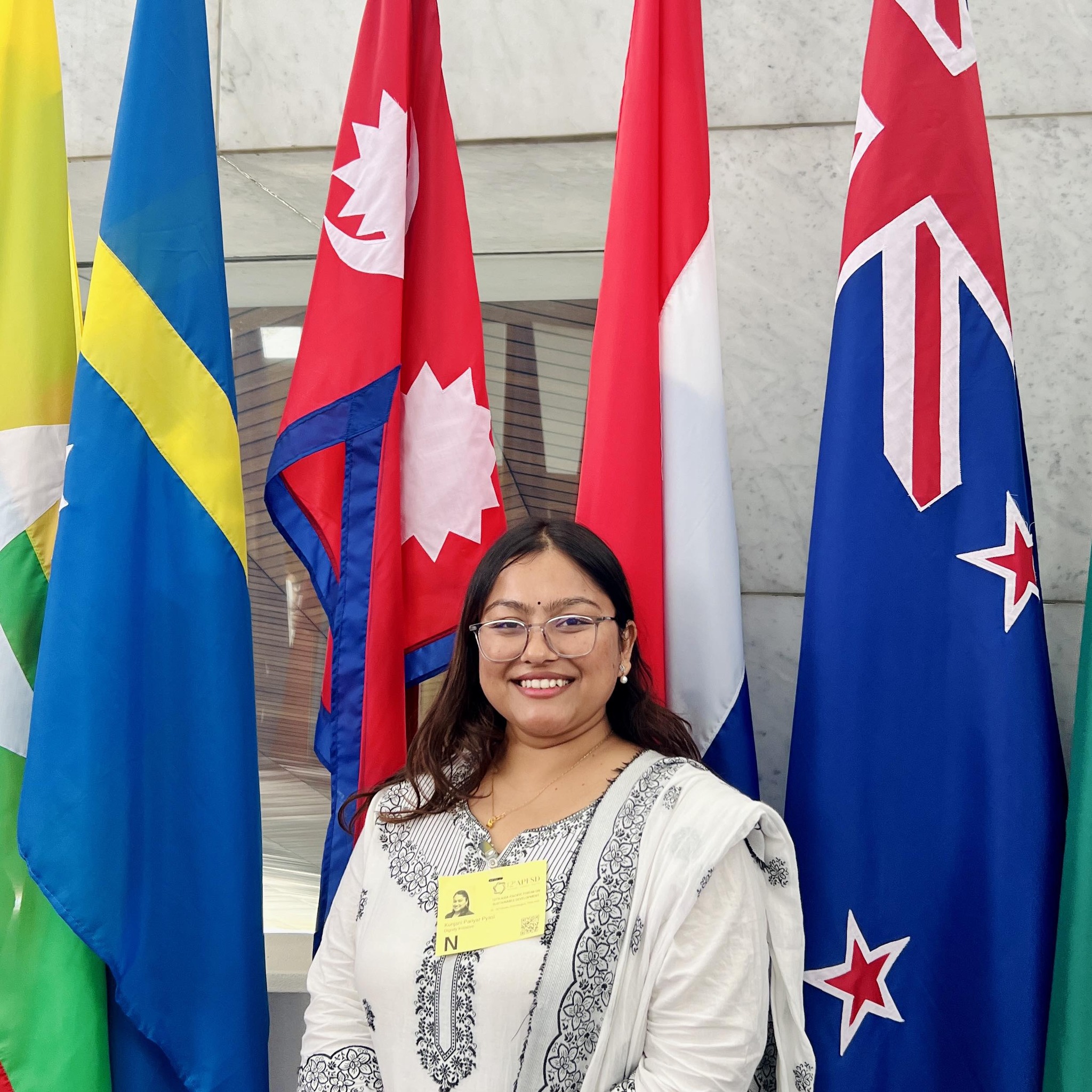
When a female lawyer becomes successful, people often attribute it to her ‘relation’ with a male judge. Male lawyers often believe that women can’t succeed in private law practice and frequently suggest, “Why practise law? Why not join the Public Service Commission?” As a Dalit woman, I hear this even more.
We are often asked, “Will you leave the field after marriage?” or “How will you continue after marriage?” When we’re called ‘nani’ or ‘bahini’ in court or insensitive comments are made, we’re expected to ignore it. Even calling out this behaviour is dismissed as ‘making a fuss over something trivial’. When we win cases, male lawyers attribute it to pity or ‘relation’ with a judge. This patriarchal mindset is so deeply ingrained that we’re conditioned to accept it.
Shailee Chaudhary
Humanitarian and queer feminist activist
Activism is about inclusivity and equality, yet male dominance and patriarchy persist, depending on who holds power in a space. Gender, caste, and class all exacerbate these differences.

For instance, my experience as a Marwari woman differs from that of a Dalit woman. In advocacy, dealing with government officers or donors often exposes these biases. Officials are often reluctant to cooperate with a woman or question a woman’s presence while donors may either genuinely uplift women or engage in tokenism.
Shanta Nepali
Director, cinematographer, mountaineer, and line producer
In our field, forget equal pay, just securing space and sustaining as a woman is a challenge. With so few female directors and cinematographers, most content is made for the male gaze.
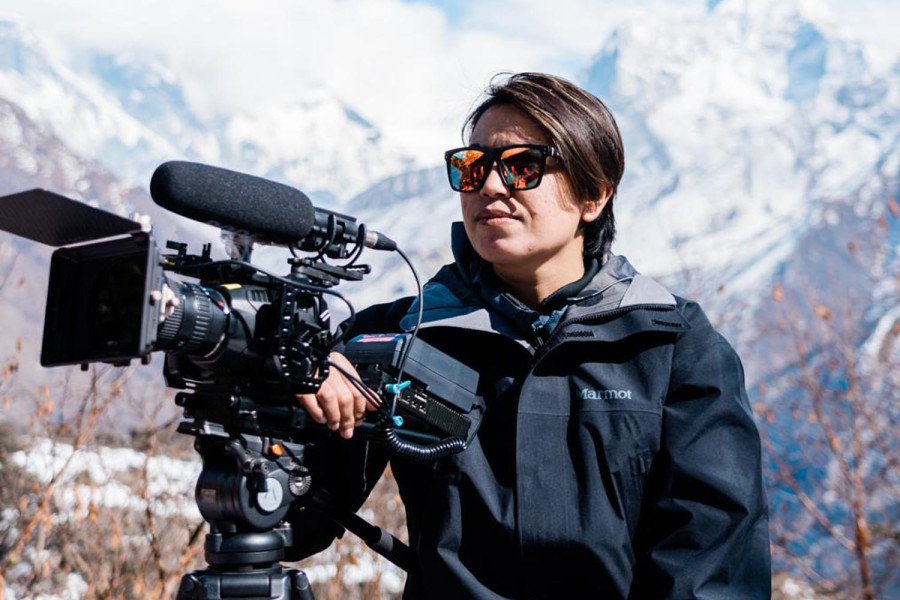
On set, people rarely believe I’m a director. They assume I’m an intern or assistant. When I give directions, many men hesitate to follow, often asking for a ‘sir’ instead. Whether due to ingrained patriarchy or simply the norm of male dominance, their reluctance makes things harder.
Even without connections, men have a smoother path, while women’s presence and opinions are undervalued. But we must keep pushing forward, pursuing our passions without letting others determine our worth.
Hricha Aryal
Graduate student and research assistant at West Virginia University, specialising in thermodynamics and advanced combustion systems
I graduated in mechanical engineering from Pulchowk Campus. At the institution, female students were constantly questioned about their choice to study mechanical engineering, while male students never faced such scrutiny.
Many male peers assumed we chose this field as a last resort, either because we couldn’t compete elsewhere or because of quotas. In contrast, men’s presence in the field was always attributed to genuine interest and capability.

Some guest lectures and practicals were scheduled beyond 5 or 6 in the evening, which was particularly difficult for female students who had to commute long distances by bus or adhere to family safety concerns. Instead of adjusting the timing to be inclusive, we were simply told, “If it’s difficult, you can leave.” It wasn’t that we didn’t want to stay late, but the environment outside wasn’t safe. Rather than addressing this, the burden was placed on us to opt out.
Beyond scheduling, there were few female faculty members, and gender-friendly toilets were lacking. While our gender was ignored in these areas, it was conveniently remembered when we tried to assert ourselves. When women wanted to speak up in class, lead discussions, or put forth opinions, we were often dismissed with comments like, “Why are you even speaking here? Go make notes.”
Neither the college nor the government has taken concrete steps to create a truly inclusive environment for women in engineering.
Chandra Bhandari
Football coach and former player
Sports in Nepal has come a long way, with more women stepping forward. Tournaments that once existed only for men now include female players. But while some progress is visible, major issues like unequal pay persist.
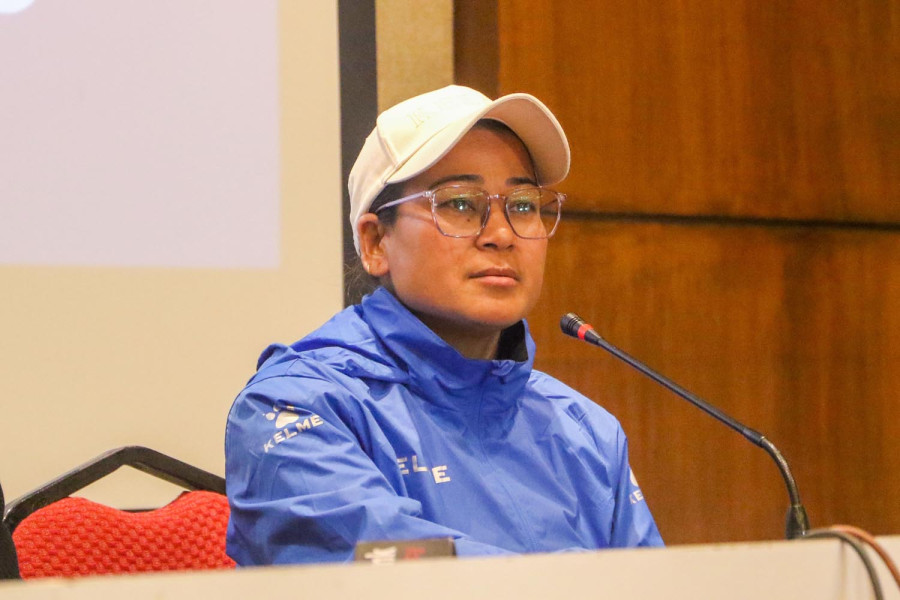
Women in sports don’t just compete on the field; they break through systemic patriarchal barriers, starting from their own families to society at large, where athletics is still seen as a man’s domain. After overcoming so much, being paid less than their male counterparts is hard to accept. The principle of fair pay must be upheld.
Sarita Sah
Playwright, actor, and director
In films and plays, women’s roles are often poorly written. Male actors are chosen based on their acting skills and suitability for the script while women are primarily selected for beauty, weight and skin colour.
Women in the industry, including those working behind the scenes, face constant objectification and sexist remarks. When we play wives or love interests, people on set freely resort to stereotyping and name-calling. I remember a male actor once saying, “You’re playing the heroine, why haven’t you shaved your arm hair?” Comments about women’s bodies and choices are easily made. Yet, if we speak up, we are labelled ‘difficult to work with and unprofessional’ and pushed aside.
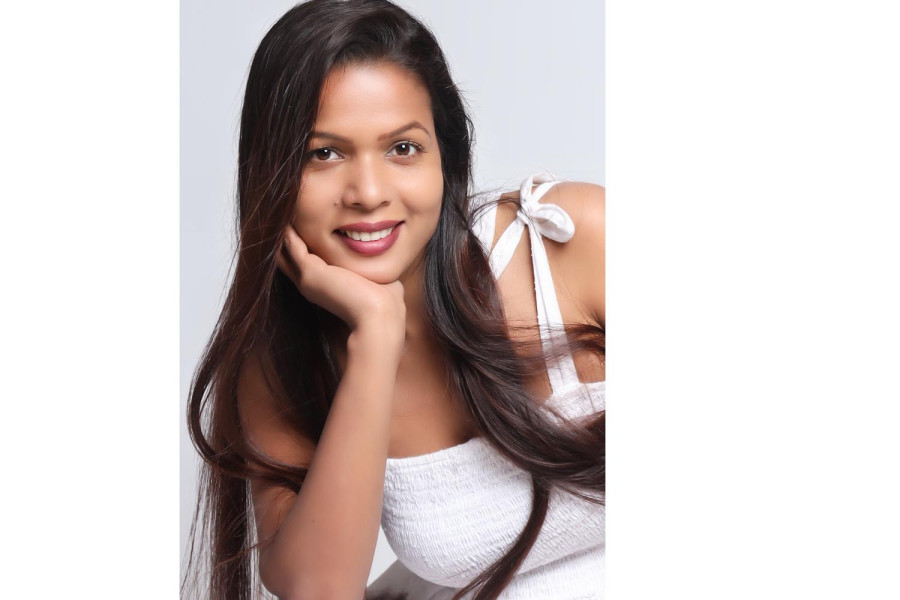
I act, direct short films, and write plays. When men juggle multiple roles, they are praised as “versatile and hardworking”, but when we do the same, we are questioned, “You should focus on one thing, how will you manage to do them all?”




 13.16°C Kathmandu
13.16°C Kathmandu


